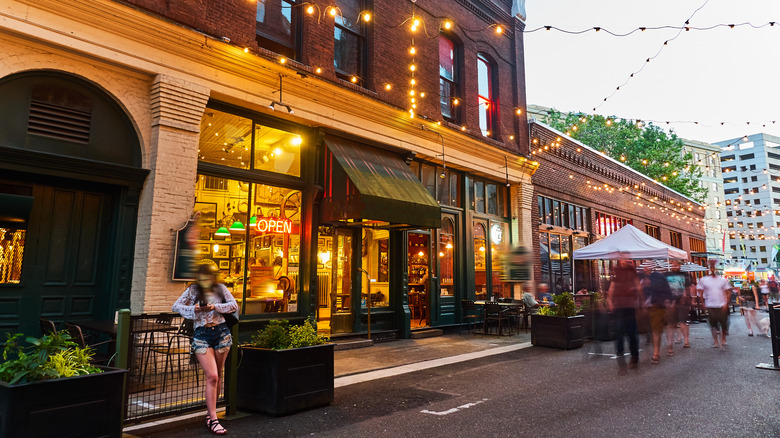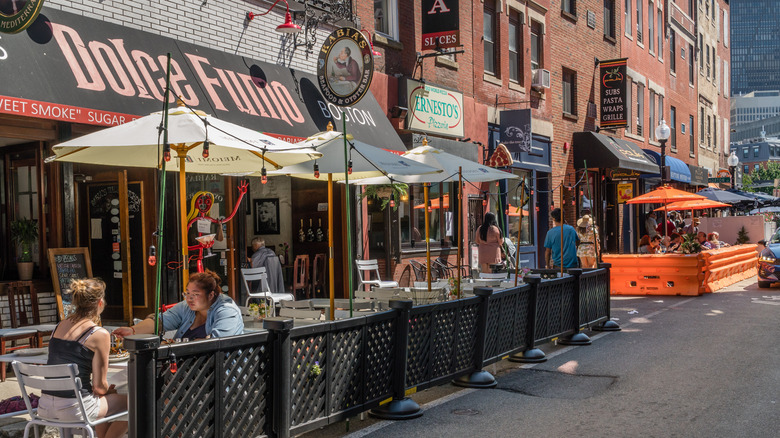Why A Group Of Restaurants Is Suing The Mayor Of Boston
When the first wave of COVID-19 hit in 2020, restaurants all over the U.S. scrambled to stay open. To help their local businesses stay afloat, the city of Boston decided to temporarily allow restaurants to set up outdoor dining on sidewalks and streets, Eater reported in May that year. During this time, restaurant owners could simply file an application with the Boston Licensing Board and, if approved, would be able to set up an outdoor dining space where they could serve customers. As of May 2022, that's no longer the case.
According to Associated Press, many restaurants will now have to pay a fee of $7,500 if they want to continue doing so. This heavily affects food businesses in the North End neighborhood, which is home to some of the busiest streets in Boston. The area also has a high density of restaurants. The outlet reports that Mayor Michelle Wu has reasoned that outdoor dining disrupts traffic, and impedes pedestrian access, trash collection, and rodent control, ultimately racking up costs for the city. A group of four business owners, who own five restaurants between them, believe that this fee is unconstitutional and causes "unfair methods of competition" because it isn't being imposed on other neighborhoods. They have sued Mayor Wu as a result.
Some restaurants are still willing to pay the outdoor dining fee
In late March, a week after the new policy was announced, Mayor Michelle Wu shared a letter to North End restaurant owners republished by the Boston Herald that stated, "If a critical mass of restaurant owners also believe this program is unworkable as proposed, then I am prepared to rescind North End outdoor dining before the start of this season."
For now, it seems unlikely that will happen because, since the announcement, local news channel ABC Boston shared that Boston officials had already received dozens of outdoor dining applications. Mayor Wu has also amended the requirements for restaurants that qualify for a hardship waiver. Provided that their application is approved, the fee will drop to either $5,000 or $3,000 and could be paid in monthly installments. The Associated Press adds that the fee could also be reduced if a restaurant doesn't have a liquor license, is located on a smaller street, or has a small outdoor dining space. Regardless of these leniencies, however, the restaurant owners suing the city are still unwilling to comply.

